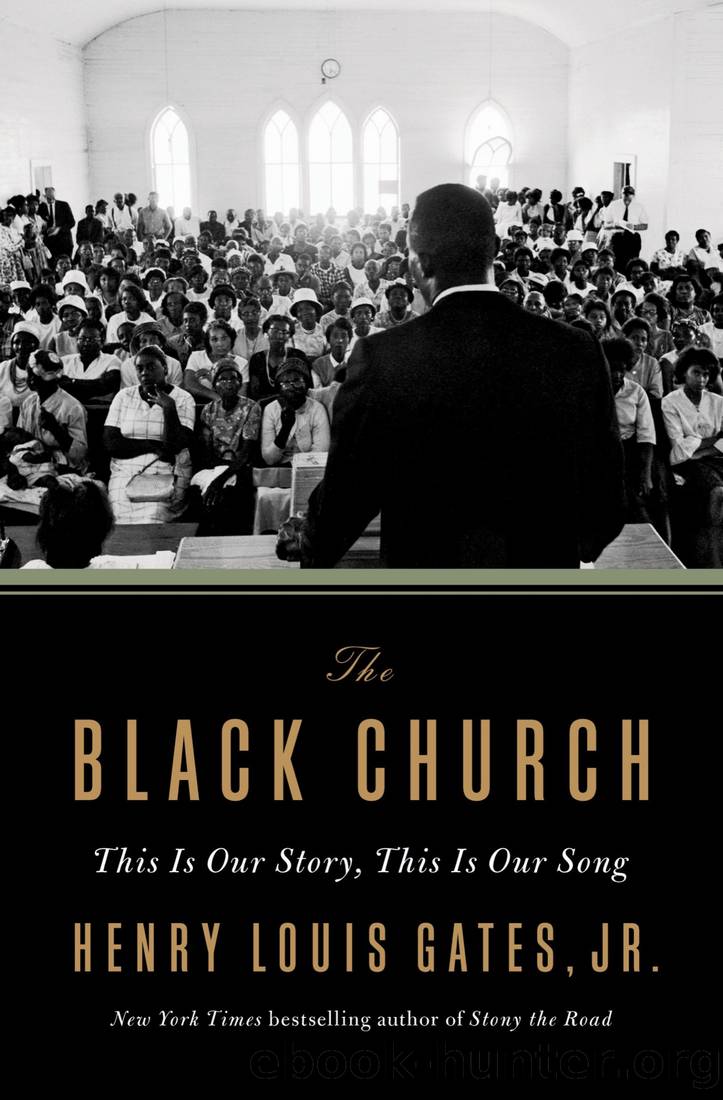The Black Church by Henry Louis Gates Jr

Author:Henry Louis Gates Jr. [Gates, Henry Louis Jr.]
Language: eng
Format: epub
Published: 2021-02-16T00:00:00+00:00
Malcolm X Speaks, rally in New York City, July 27, 1963.
When it came to civil rights legislation, Malcolm X, who left the Nation of Islam in 1964, came to agree with the goals of most southern civil rights activists, even as he agitated for revolution: âWe want to make them pass the strongest civil rights bill theyâve ever passed,â he said. âIn order to do this, weâre starting a votersâ registration drive. . . . There wonât be a door in Harlem that will not have been knocked on to see that whatever Black face lives behind that door is registered to vote.â
And in the North, these voters could make a difference. âBetween 1920 and 1960, African Americans have built real bastions of political power in the urban North so that they can actually demand a much higher level of accountability from the federal government,â says the University of Florida professor of history Paul Ortiz, âso much so that Black voting strength begins to determine U.S. presidential elections. So if youâre a person like John F. Kennedy or Lyndon B. Johnson, and you want to be elected president, suddenly the African American vote is a swing vote.â
The right to vote was still a far-off dream for many African Americans in postwar America, especially in the former Confederate states of the Deep South. Jim Crow laws, poll taxes, literacy tests, and violent terror tactics blocked African Americansâ access to full citizenship, despite the guarantees of the Fifteenth and Nineteenth Amendments, which barred discrimination by race or sex in the right to vote.
âAfrican Americans believed that they had the opportunity to smash white supremacy,â Ortiz says. âItâs one of the most dramatic social movements in American history, and itâs fueled at the base by Black churches, Black fraternal organizations, and Black labor unions.â
Black church leaders, as well as members of their congregations who joined the struggle for civil rights, often suffered a violent and unrepentant backlash. As a result, Pierce explains, âThere were plenty of Black churches that did not participate in the civil rights movement. They were afraid to be a part of it. They worried that their churches would be the next to be bombed. And so they refused to allow the leaders of the civil rights movement to even have services there.â
Download
This site does not store any files on its server. We only index and link to content provided by other sites. Please contact the content providers to delete copyright contents if any and email us, we'll remove relevant links or contents immediately.
Winning the War in Your Mind by Craig Groeschel(541)
A World Ablaze by Craig Harline(506)
White Too Long by Robert P. Jones(470)
Beautiful Resistance: The Joy of Conviction in a Culture of Compromise by Jon Tyson(464)
The Mission by David W. Brown(460)
History of the Church by Eusebius(459)
In the Reign of King John by Dan Jones(457)
No More Christian Nice Guy by Paul Coughlin(430)
The Crusades: A History by Jonathan Riley-Smith(401)
Why Study History? by John Fea(387)
The Black Church by Henry Louis Gates Jr(372)
The Tale of the Tardy Oxcart (Swindoll Leadership Library) by Swindoll Charles R(371)
Three Messiahs : The Historical Judas the Galilean, the Revelatory Christ Jesus, and the Mythical Jesus of Nazareth (9781450259477) by Unterbrink Daniel T(367)
The History of Palestine by John Kitto(353)
A Spacious Life by Ashley Hales(347)
Assassination of a Saint by Eisenbrandt Matt(339)
Augustine of Canterbury by Robin Mackintosh;(323)
Border Lines: The Partition of Judaeo-Christianity (Divinations: Rereading Late Ancient Religion) by Daniel Boyarin(320)
The Zionist Bible (BibleWorld) by Masalha Nur(317)
